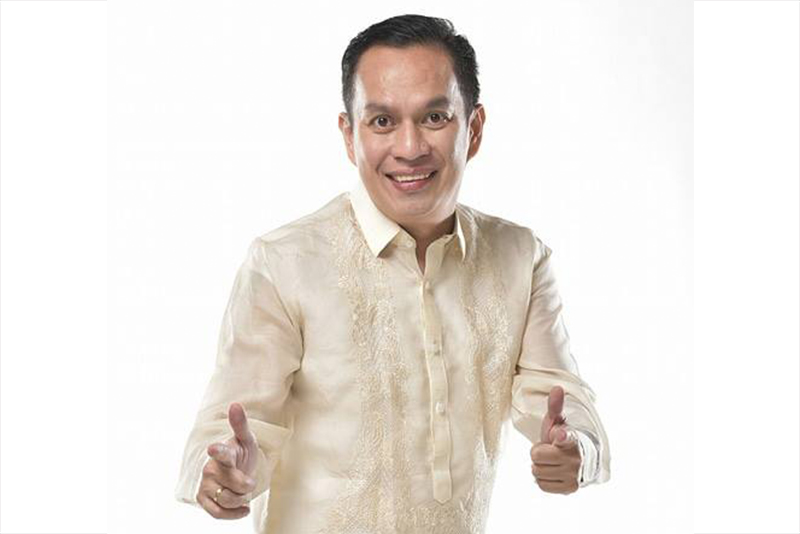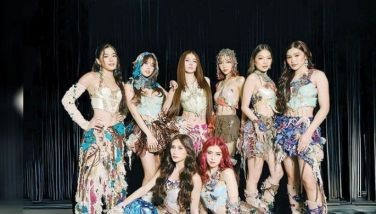The Beatles in Manila revisited
October 15, 2005 | 12:00am
 Thirty-nine years ago, The Beatles landed in the Philippines from Tokyo for a two-concert stop, marking the end of their tour of Germany and Japan. What is considered as The Beatles’ second biggest concert ever became a dark spot though in the group’s history. Just exactly what happened on those fateful days remains confusing to many. Was it simply a case of miscommunication, lack of communication, false assumptions, opportunism? Whatever, the Philippine experience became one of the last nails in The Beatles’ touring coffin as Neil Aspinall, a very close Beatle associate, put it.
Thirty-nine years ago, The Beatles landed in the Philippines from Tokyo for a two-concert stop, marking the end of their tour of Germany and Japan. What is considered as The Beatles’ second biggest concert ever became a dark spot though in the group’s history. Just exactly what happened on those fateful days remains confusing to many. Was it simply a case of miscommunication, lack of communication, false assumptions, opportunism? Whatever, the Philippine experience became one of the last nails in The Beatles’ touring coffin as Neil Aspinall, a very close Beatle associate, put it.
The Manila concert was the last leg in the two-week tour of Germany and Japan. Nostalgia overwhelmed The Beatles during their tour of Germany as they returned to Hamburg for the first time since 1962. By and large, this first leg of the tour proceeded without any hassle except for one upsetting letter George received before The Beatles left for Tokyo warning him that he wouldn’t live beyond the next month. This threat, apart from the protests organized by conservative quarters in Japan against the planned concert of The Beatles in the Nippon Budokan Hall, a sacred shrine for martial arts, set the tone for their one-week stay in Tokyo. Throughout this time, The Beatles were practically imprisoned in their hotel rooms. On July 3, 1966, The Beatles landed on Philippine soil for the first and last time.
This two-night stopover in Manila proved disastrous from arrival to departure. Upon landing, the four Beatles were immediately whisked to a pier and put on Marina, a yacht owned by Don Manolo Elizalde, two miles from the port. This arrangement completely cut The Beatles from their associates for at least two hours – the first time it ever happened.
On July 4, The Beatles held two sold-out concerts at the Rizal Memorial Football Stadium with a combined attendance of 80,000; the evening concert registered 50,000 paying audience, being rivaled only in size by the concert The Beatles gave at Shea Stadium in New York on Aug. 15, 1965. Such record-making statistic though was supplanted by the succeeding events owing to a fiasco that happened earlier in the day.
The alleged Beatles snub of then First Lady Imelda Marcos remains hazy to many Beatles fans. Even reliable sources maintain conflicting accounts.
On July 4, a lunch was set at Malacañang Palace at 11 a.m. with 300 children waiting to see The Beatles. An hour before the party, a delegation came to the Manila Hotel to collect The Beatles. Brian Epstein, The Beatles’ manager, declined the invitation on the grounds that no earlier arrangement had been made and The Beatles were still in bed.
The day’s scheduled concerts, however, later proceeded successfully. In between concerts, local televisions reported the alleged "snub", showing footage of children, some crying, disappointed by The Beatles. Epstein watched in horror and went immediately to the television studio to apologize and set the facts straight. But barely had he started reading his press statement when the transmission blipped.
Newspapers carried the headline "Beatles Snub President" the following morning, the scheduled departure of The Beatles to New Delhi. Suddenly, The Beatles and their entourage realized they were practically on their own without any help. Room and security services were withdrawn. In the airport, the whole Beatles entourage was manhandled as it made its way to the plane.
Tony Barrow, the tour’s publicity man and part of the entourage, claims that Epstein received the invitation the night before the concerts but remained non-committal. Whether it was wise for the local promoter to take this silence as approval is now moot.
Bill Harry, in his book The Ultimate Beatles Encyclopedia, acknowledges the existence of an invitation from Ramon Ramos, the local promoter, for The Beatles to pay a courtesy call on the First Lady. But it was slated for three o’clock of July 4, an hour before The Beatles’ scheduled afternoon concert. Ramos did not pursue this invitation, since The Beatles wanted to be in the concert location two hours before the set. Nor did he inform anyone in Malacañang about this. A further mixup in schedule emerged when the Palace set the meeting at 11 a.m. as reported in The Manila Times on July 3. Whether anyone went out of his way to settle the matter, and what transpired in this effort, if any, remains unknown.
Peter Brown, the executive director of NEMS Enterprises (The Beatles’ management company), was also in The Beatles’ entourage. He claims that Epstein first learned of the invitation when the delegation was sent to fetch The Beatles and flatly said no to it. According to Brown, Epstein later learned that Tony Barrow and Vic Lewis, the tour agent, received the invitation while still in Tokyo but failed to relay this to him.
What is interesting about Brown’s account though was the call Epstein received, immediately after his refusal, from the British ambassador, who advised him against missing the party of the First Lady, and reminded him that the help and protection they were receiving in Manila were courtesy of the President. Epstein stood by his decision. Whether The Beatles would have come to the party even if Epstein recalled his decision is another question though. Twenty years later in 1986, George Harrison must have felt glad, though inadvertently, not to have graced this occasion and to have been perceived as having snubbed the Marcoses.
The local promoters should have known better that The Beatles shied away from political gatherings, especially after their first tour of America in 1964, when someone pulled some of Ringo’s hair for souvenir during one official function. Since then, Peter Brown noted, Epstein adopted this as a NEMS policy. The Beatles very well agreed to it.
For the part of The Beatles’ entourage, Epstein ultimately took responsibility for this "cock-up," the way John Lennon described the whole mess. Shortly before the KLM plane to New Delhi took off, Brown recounted that Epstein felt too bad he exposed The Beatles to great physical danger. In New Delhi, The Beatles decided to end touring, which they told their manager en route to London.
Among the Filipino organizers, no one apparently owned up to this fiasco. The local promotion outfit may have succumbed to (self-)imposed pressure, accounting for the withdrawal, after the debacle, of all services customarily accorded any touring party, most especially if it was as big as The Beatles.
But the physical humiliation and harm suffered by the whole Beatles entourage in the airport is completely another story, beyond the capacity of the local promoters to stage. Only more powerful forces could have orchestrated the ordeal inflicted on The Beatles’ tour team.
BrandSpace Articles
<
>
- Latest
- Trending
Trending
Latest
Trending
Latest
Recommended





























